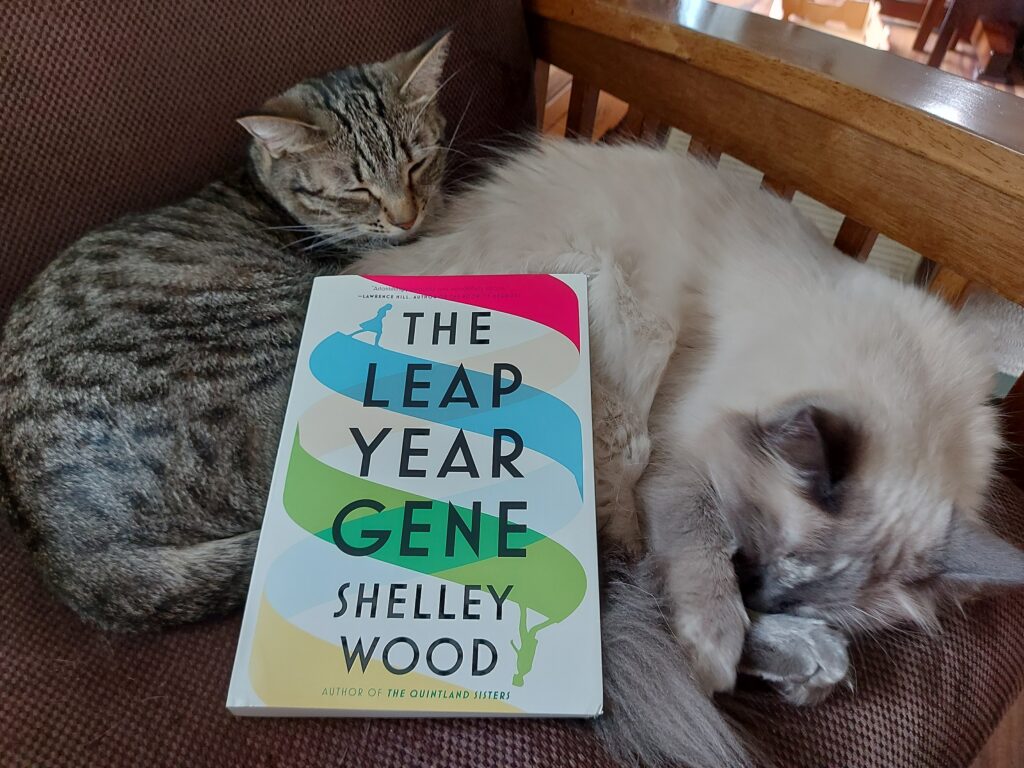The Leap Year Gene by Shelley Wood

Shelley Wood’s The Leap Year Gene has an intriguing premise and is for the most part an interesting novel, but I feel like the last quarter of the novel was rushed and therefore left me feeling dissatisfied by the time I finished it. The novel is about a baby girl, Kit McKinley, who is born on February 29, 1916, and inexplicably only ages one year for every four years. The funny thing about The Leap Year Gene is that even though Kit is at the center of the novel, I found her character to be the least satisfying of the four main characters.
The novel opens with Ernest McKinley, Kit’s soon-to-be stepfather, just prior to Kit’s birth, when Ernest finds out that the widow of his brother Thomas (who died in WWI) is pregnant with his brother’s baby. The only problem is that Kit’s mother, Lillian, doesn’t look like she has been pregnant long enough to be having Thomas’s baby. It becomes apparent that the baby in Lillian’s uterus is developing very slowly and her pregnancy lasts something like eighteen months (!) before Kit is finally born.
Kit is born during the eugenics movement, when people were obsessed with the idea of producing perfect human specimens and breeding out “undesirable” human traits through forced sterilization. The Nazis took it one step further, of course, and murdered children who had mental and physical disabilities under the guise of Kinder-Euthanasie (this was before they started sending children to die in the concentration camps). Part of the novel is set in Germany a few years prior to WWII when Kit and her family are living in Berlin while Lillian is working on her PhD in botany, but secretly studying genetics in order to figure out the gene that makes Kit age so slowly. Ernest and Lillian are worried that if everyone finds out about Kit’s “leap year gene”, she will be used as a science experiment to create longevity in humans. I found the earlier decades of the story to be the most interesting and the most intense.
The Leap Year Gene is told in four parts from the perspectives of four different characters, the first three of them being Kit’s family members. From their perspectives, Kit is a super intelligent, impetuous child with a curiosity about life, but you never get a sense about how she feels about her own situation. By the time you get to Kit’s part of the story, when she physically appears to be a young adult, she comes across as the kind of person everyone expects her to be: cautious and concerned about the secret of her “leap year gene” being discovered. At this point, the passage of years, as well as the story, accelerates so quickly that Kit’s character hardly develops any further. Her relationships with new characters brought late into the story are thinly sketched and lack the emotional attachment that I felt earlier in the story with Kit’s family. I thought The Leap Year Gene was a very affecting novel for the first three-quarters of the story, but it loses that feeling as it races to its conclusion.